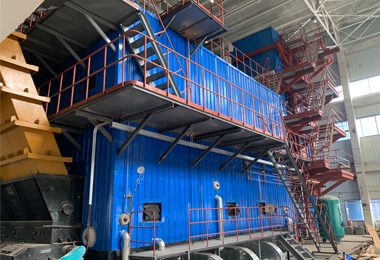
Dec . 11, 2024 20:34 Back to list
high efficiency steam boiler
High Efficiency Steam Boilers A Key to Sustainable Energy Solutions
In recent years, the demand for high efficiency steam boilers has skyrocketed, largely driven by the increasing emphasis on energy conservation and environmental sustainability. As industries across the globe strive to reduce their carbon footprints and enhance operational efficiency, high efficiency steam boilers have emerged as vital components in achieving these goals.
Understanding High Efficiency Steam Boilers
A steam boiler operates by heating water to produce steam, which is then utilized for various applications such as heating, power generation, and industrial processes. The term “high efficiency” refers to boilers that are designed to maximize energy conversion and minimize waste, resulting in lower fuel consumption and reduced emissions.
The efficiency of a steam boiler is typically measured by its thermal efficiency and combustion efficiency. Thermal efficiency indicates the amount of energy converted from fuel into steam, while combustion efficiency assesses how effectively the fuel is burned. High efficiency steam boilers typically achieve thermal efficiencies above 90% and combustion efficiencies of similar levels, making them superior to traditional models.
Benefits of High Efficiency Steam Boilers
1. Energy Savings High efficiency steam boilers reduce fuel consumption significantly. This translates to lower energy costs for businesses, providing a quick return on investment. Over time, the savings can be substantial, allowing companies to allocate resources more effectively.
2. Reduced Emissions With an increased focus on environmental responsibility, the reduced emissions associated with high efficiency steam boilers play a critical role in helping industries comply with stringent regulatory standards. Lower emissions contribute to better air quality and a significant reduction in the greenhouse gas emissions that contribute to climate change.
3. Improved Reliability These advanced boiler systems are often equipped with state-of-the-art monitoring and control technologies. This results in enhanced reliability and the ability to operate more consistently under varying load conditions. Reduced downtime means increased productivity for businesses that rely heavily on steam.
4. Versatility High efficiency steam boilers are versatile and can be adapted for various applications, including food processing, chemical manufacturing, hospitals, and power plants. Their ability to operate efficiently across different industries makes them a valuable asset in diverse settings.
high efficiency steam boiler

Technology Innovations
The development of high efficiency steam boilers is closely tied to technological advancements in boiler design and operation. Some of the key innovations include
- Condensing Heat Exchangers These systems capture and utilize the waste heat from flue gases, which helps to improve overall efficiency by preheating the incoming feed water.
- Modulating Burners Modern burners can adjust their output based on the demand for steam, allowing for faster response times and energy savings when full capacity is not required.
- Advanced Control Systems Using sensors and automation, boilers can now be monitored and controlled remotely. This allows for real-time adjustments to enhance efficiency and performance, as well as predictive maintenance based on usage patterns.
Challenges and Considerations
While high efficiency steam boilers offer numerous advantages, there are challenges to consider. The initial capital investment can be higher than traditional boilers, but the long-term savings often justify the expense. Additionally, industries must ensure their staff are adequately trained to manage these advanced systems, as improper operation can negate efficiency gains.
Conclusion
High efficiency steam boilers represent a crucial element in the global shift toward more sustainable energy practices. By reducing fuel consumption and emissions, these innovative systems not only lower operational costs but also contribute to a healthier planet. As industries continue to prioritize efficiency and sustainability, the role of high efficiency steam boilers will likely expand, making them an essential component of modern energy solutions. Ultimately, the ongoing evolution of boiler technology reflects a broader commitment to energy conservation, environmental stewardship, and economic efficiency, paving the way for a more sustainable future.
-
High-Efficiency Commercial Oil Fired Steam Boiler for Industry
NewsJul.30,2025
-
High-Efficiency Biomass Fired Thermal Oil Boiler Solutions
NewsJul.30,2025
-
High Efficiency Gas Fired Thermal Oil Boiler for Industrial Heating
NewsJul.29,2025
-
High-Efficiency Gas Fired Hot Water Boiler for Sale – Reliable & Affordable
NewsJul.29,2025
-
High Efficiency Biomass Fired Hot Water Boiler for Industrial and Commercial Use
NewsJul.29,2025
-
High-Efficiency Biomass Fired Hot Water Boiler for Industrial Use
NewsJul.28,2025
Related PRODUCTS






















